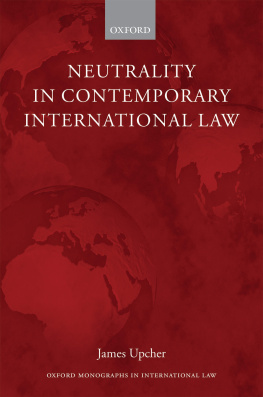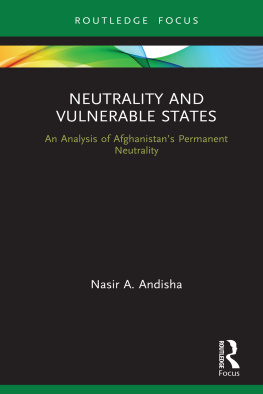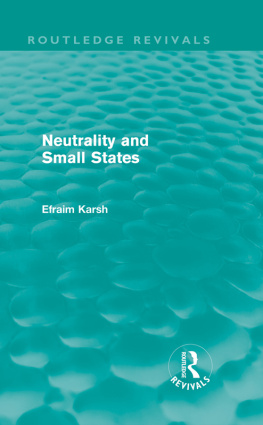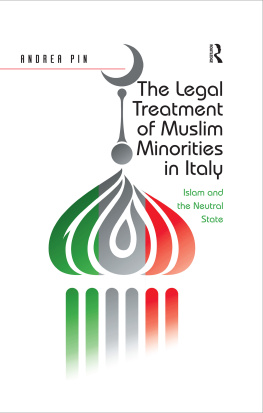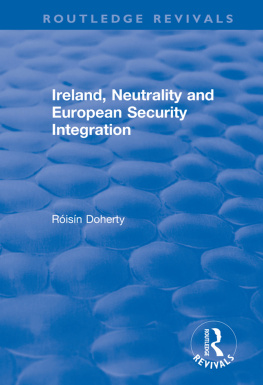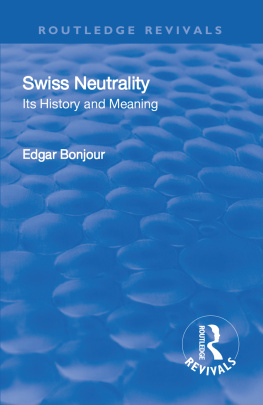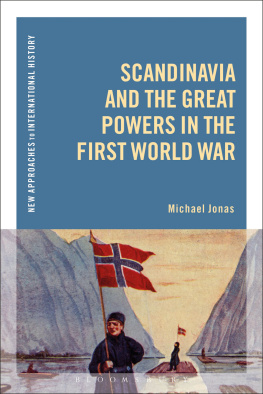Oxford Monographs in International Law
The aim of this series is to publish important and original pieces of research on all aspects of international law. Topics that are given particular prominence are those which, while of interest to the academic lawyer, also have important bearing on issues which touch the actual conduct of international relations. Nonetheless the series is wide in scope and includes monographs on the history and philosophical foundations of international law.
General Editors
PROFESSOR CATHERINE REDGWELL
Chichele Professor of Public International Law at the University
of Oxford and Fellow of All Souls College, Oxford
PROFESSOR ROGER OKEEFE
Professor of International Law at Bocconi University, Milan
recent titles in the series
Geographical Change and the Law of the Sea
Kate Purcell
Statehood and the State-Like in International Law
Rowan Nicholson
Confronting the Shadow State
An International Law Perspective on State Organized Crime
Henri Decur
Irresolvable Norm Conflicts in International Law
The Concept of a Legal Dilemma
Valentin Jeutner
Institutionalizing State Responsibility
Global Security and UN Organs
Vincent-Jol Proulx

Great Clarendon Street, Oxford, OX2 6DP, United Kingdom
Oxford University Press is a department of the University of Oxford. It furthers the Universitys objective of excellence in research, scholarship, and education by publishing worldwide. Oxford is a registered trade mark of Oxford University Press in the UK and in certain other countries
Oxford University Press 2020
The moral rights of the author have been asserted
First Edition published in 2020
Impression: 1
All rights reserved. No part of this publication may be reproduced, stored in a retrieval system, or transmitted, in any form or by any means, without the prior permission in writing of Oxford University Press, or as expressly permitted by law, by licence or under terms agreed with the appropriate reprographics rights organization. Enquiries concerning reproduction outside the scope of the above should be sent to the Rights Department, Oxford University Press, at the address above
You must not circulate this work in any other form and you must impose this same condition on any acquirer
Crown copyright material is reproduced under Class Licence Number C01P0000148 with the permission of OPSI and the Queens Printer for Scotland
Published in the United States of America by Oxford University Press
198 Madison Avenue, New York, NY 10016, United States of America
British Library Cataloguing in Publication Data
Data available
Library of Congress Control Number: 2019955822
ISBN 9780198739760
ebook ISBN 9780191060281
Printed and bound in Great Britain by Clays Ltd, Elcograf S.p.A.
Links to third party websites are provided by Oxford in good faith and for information only. Oxford disclaims any responsibility for the materials contained in any third party website referenced in this work.
Foreword
Dr James Edward Upcher was born in Hobart, Tasmania, Australia, in 1979. He attended The Friends School, a Quaker school in Hobart, and the humanist ideals of Quakerism infused his character and his outlook on the world. He obtained his Bachelor of Arts with First Class Honours and a Bachelor of Laws with First Class Honours at the University of Tasmania, winning the University Medal. He continued his studies at Oxfords Merton College, where he obtained, in 2011, his DPhil (public international law) under a Sir Robert Menzies Memorial Scholarship in Law and a Commonwealth Scholarship. His thesis, entitled Neutrality in International Law, was supervised by Professor Stefan Talmon.
Having qualified as a Barrister and Solicitor of the Supreme Court of Victoria, Australia, he practised public international law at leading law firms in London. In 2014, he joined Newcastle Law School (Newcastle University, United Kingdom) as Lecturer in Law, where he taught mainly public international law, international human rights law, and international investment law. His research interests revolved around international dispute settlement, the history and theory of international law, and the law of armed conflict.
James died as the result of an accident on 18 May 2017, aged 37. With his death, we lost a colleague, a mentor, a friend.
Modest, Discerning, and a Loyal Friend
James was a man of integrity, modesty, and intellect. He was meticulous and passionate, a deep thinker and empathetic. He was independent and discerning, always trustworthy and a true confidant. He was engaged with people, asking questions, keen to learn about what their thoughts and opinions were about law, politics, the world, people, and arts.
James was quiet about his own accomplishments and ambitions. Indeed, you had a difficult task on your hands persuading him to say anything about them. He hardly spoke about the awards and scholarships he had received. I first learned through a press article that he was awarded (as co-author) the Smit-Lowenfeld Prize for the best article in the field of international arbitration in 2013 (Public International Law, Investment Treaties and Commercial Arbitration: an Emerging System of Complementarity?, published in Arbitration International).
James consciously focused on supporting the people he cared about. He was a devoted friend, trying to inspire people to pursue their dreams and do what they love. He had a real and positive influence on the lives of many people. He had a beautiful soul. His boundless curiosity and enthusiasm were contagious. Having worked, taught, and travelled with him, I have been one of the fortunate beneficiaries of James virtues.
A Charismatic Scholar
When I first met James in 2011, I was curious to know why he decided to specialize in international law. After completing his undergraduate studies at the University of Tasmania, he was awarded the Tim Hawkins Memorial Scholarship. This scholarship provided him with the extraordinary opportunity to spend some time in The Hague, where he interned with the International Criminal Tribunal for the former Yugoslavia and discovered the practice of international criminal law. That experience played an instrumental role in his career in international law. In his own words: I have always had an academic interest in international law and was particularly drawn to international humanitarian law from the beginning of my studies. The legal regulation of armed conflict presents issues of moral philosophy in an acutely practical context; these very difficult issues have to be translated into a legal framework that is clear and effective. The events of 11 September 2001 and subsequent acts of global terrorism one of which tragically took Tim Hawkins lifehave given rise to new and urgent questions of international humanitarian law. An armed conflict, in James mind, resembled a Greek tragedy: a situation where tensions and dilemmas emerge, leading human beings to their destiny.
Following his stay in the Dutch capital, he moved back to Australia where he worked for a major law firm. In 2005, he moved to Oxford for his doctoral studies. As a researcher and academic, he was characterized by an undogmatic approach to law. He was uninterested in schools of thought and defied

